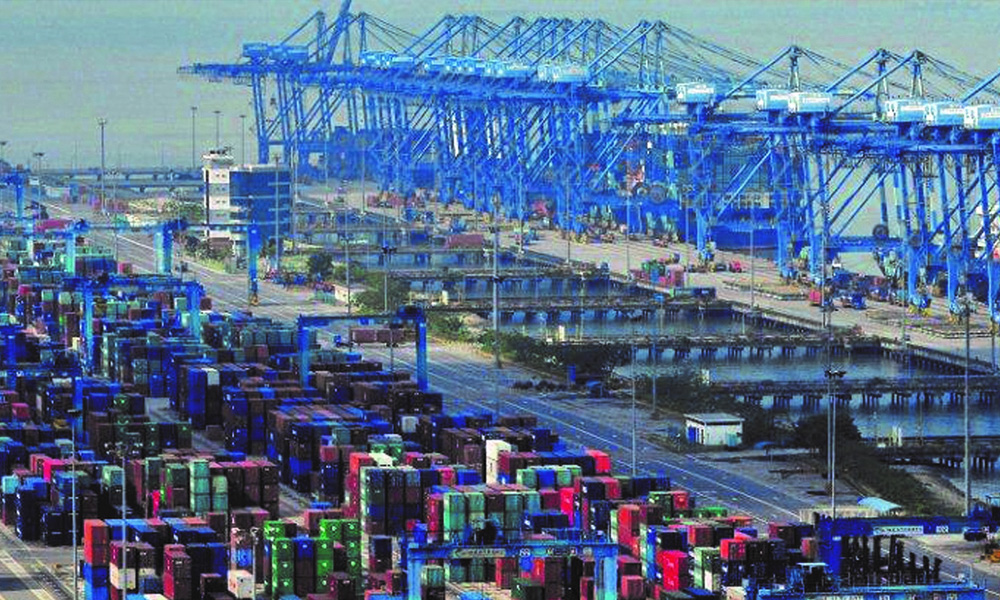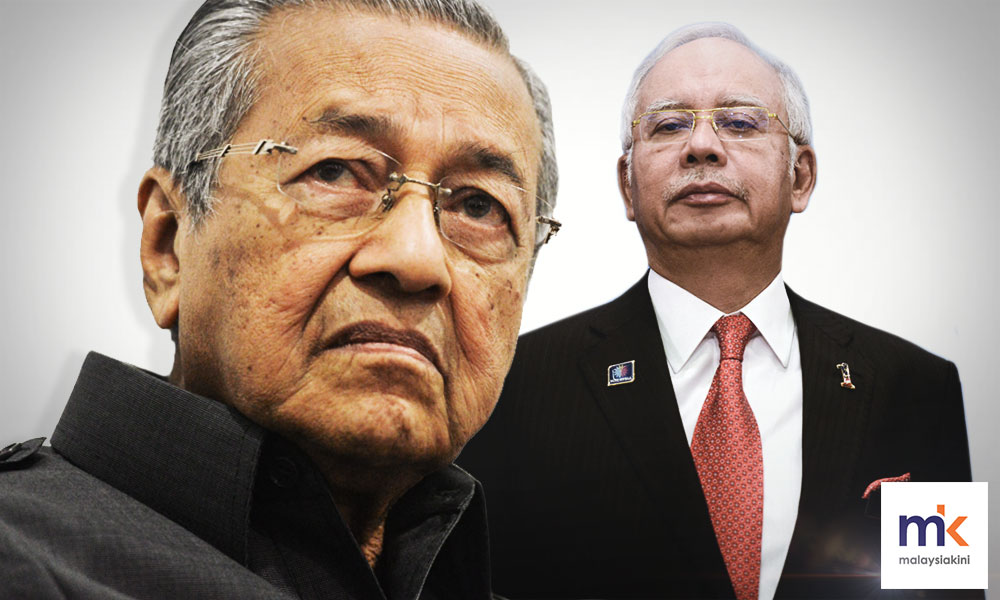
I don’t mind historical revisionists. I’m one myself. I do mind, though, when those who try it do so for propaganda. BN’s Strategic Communication Department, of which Eric See-To is a deputy director, reminds me of Goebbels’s Propaganda Ministry.
See-To attempted at “correcting” Dr Mahathir Mohamad’s claims to the latter’s management of the Malaysian economy. See-To’s was a hatchet job.
He exhibited the desperate BN agenda to disparage Mahathir and his legacy, whatever that might be. It’s possible incumbent Prime Minister Najib Abdul Razak doesn’t want to hog the limelight with Mahathir on matters economic.
I’ll never defend Mahathir. Not knowingly. Nor Najib. Both are pathological. They can’t be trusted and shouldn’t. For Malaysia’s conservative and racially-divided voters, they’ll have to decide soon who’s the lesser evil. As if a lesser devil is even possible.
Not that, like Mahathir, Najib is pulling rabbits out of hats to create a “miracle” economy. Not that Malaysia is or was a “miracle” economy. Not that South Korea, Taiwan, Hong Kong, Singapore or others in Southeast Asia were or will be. There were neither “dragons” nor “tigers”.
Ridiculous zoological labels aside, each one was a historical peculiarity from the 1960s to the late 1990s. Each, through deliberate manipulation, operated not on the basis of free-market economics but 19th-century mercantilism. And in very propitious times.
Those times arose as a result of the postwar international order. It gave immediate rise to the “long boom” which ran from 1945, with the Keynesian Bretton Woods system in 1944, to circa 1973.
In Asia, the “long boom” was underwritten by a US-dominated regional Cold War system. Each state consciously worked a “conveyor belt” between creating domestic growth and development and the Cold War international economy.

The tenor of the international economy changed drastically when US president Richard Nixon buried the gold standard in 1970. The US dollar appreciated sharply and cemented its place as the world’s reserve currency. This, in turn, gave rise to the new international division of labour as the US economy puttered.
This is when Malaysia plugged itself aggressively into the international economy. It had little choice. All states, including those in Africa and South Asia, competed for markets and capital. Malaysia had to develop its industrial base. It relied on foreign investments and debt to build its manufacturing export sector.
But it simultaneously also maintained protectionism through import-substitution, specifically of its crucial agriculture and commodities sector. It still does today, including the construction sector.
Cronyism, nepotism, corruption
That’s the ‘nutshell’ to Malaysia’s growth and development policy from the 1960s to the mid-1970s. The mid-1970s was also when Najib’s old man, Abdul Razak, brought the anti-Tunku Abdul Rahman Mahathir back into Umno after his banishment.
Razak didn’t do this out of the goodness of his heart; he did it for political reasons. Malay nationalism was surging, as was Malay economic nationalism. And from the sidelines, Mahathir was giving both oxygen.
Recall the New Economic Policy (NEP) that emerged a year after the murderous race riots of 1969. It carried deep grooves from Mahathir’s treatise, The Malay Dilemma - warts and all, including rising nationalist racism.
The economy wasn’t spared, either. It was carved up between Chinese, Malays and foreigners (at the time British agribusiness) with a 30-30-30-10 share.
The other races didn’t get a look-in unless, like the MIC Indian elites, they tied their umbilical cord to the dominant, xenophobic Umno. No surprise then that the NEP was prejudiced in outlook and flavour from the start. Those policies were vigorously if shambolically prosecuted by the Umno-state.

They continue unabated. Importantly, they gave rise to entrenched patron-client relations and to cronyism, nepotism and corruption or what has been called “ersatz capitalism”.
Yet for his own reasons, See-To has chosen to gloss over some of the most decisive historicisms of late 20th-century capitalism. In the Asian sphere, it was capitalism with its own distinct characteristics.
These characteristics had little-to-nothing to do with orthodox free-market economic ideology, as its unreconstructed dogmatists would like people to believe.
It had more to do with political necessities and necessary adjustments. Mahathir and Najib know this full well. It’s easy to tout the Malaysian economy as an “open economy”. It is open but only in those sectors that depend heavily on foreign capital.
And it is wrong and senseless to view the economy as an indiscrete or monolithic whole. No economy is this. Nor has been. Not in much-touted “laissez-faire” Hong Kong and Singapore. Not in giant economies like the US, China, Germany, Japan or India.
They are some who will do their darnedest to shut down discussion and debate of alternative views. Such immaturity shows ignorance. Malaysia is supposedly a democracy. There’s certainly zero intellectual democracy in Malaysia.
See-To might think it exists and he has been charged with shutting down Mahathir. It’ll never work. Although the old man’s (economic) legacy is certainly debatable, See-To’s attempt yesterday clearly shows he’s well out of his depth.
MANJIT BHATIA, an Australian, is a US-based academic, researcher and analyst specialising in Asian and international economics, political economy and international relations. He lives in Hanover, New Hampshire. -Mkini



No comments:
Post a Comment
Note: Only a member of this blog may post a comment.